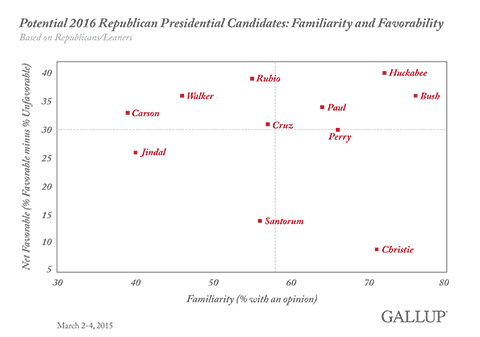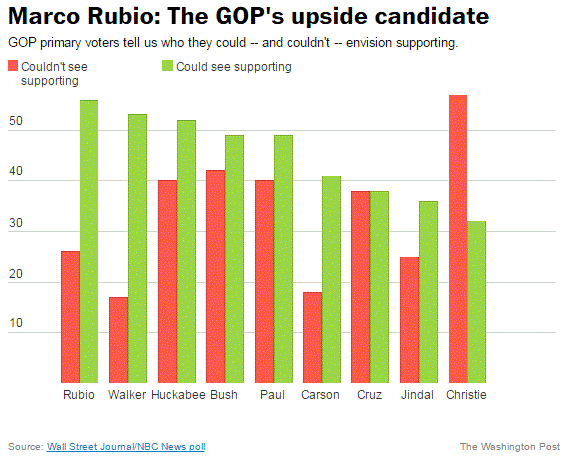At National Journal back in February, Ron Fournier interviewed Jeb Bush, who officially announces his candidacy today.
I suspect Bush is road-testing the seeds of an attack against Hillary Rodham Clinton, the most likely 2016 Democratic nominee. "Certainly, the health care law was a good example of that. The industrial laws, the use of the Department of Labor, the encumbering that is making it harder for people to have start-ups – all these things are now really becoming a challenge," Bush says.
"The answer isn't no government," he says. "The answer is smarter, effective government."
If his brother, former President George W. Bush, was a compassionate conservative, Bush is trying to be a 21st-century conservative—a center-right leader who talks more about reforming government than shrinking it, even if the results are the same.
Bush tells me about Hernando de Soto Polar, the Peruvian economist who specializes in the so-called informal economy (removed from taxes and government oversight). The economist documented frustrations of entrepreneurs across the globe whose innovations are crushed by crony capitalism and government monopolies, including a Tunisian man who in 2013 set himself afire in protest. "We're not Tunisia by any stretch of the imagination," Bush says, but "we're getting more and more complicated."
In calling for smarter government instead of no government, Bush was
channeling Reagan.
In his 1981 inaugural address, Reagan famously said: "In this present crisis, government is not the solution to our problem; government is the problem." But people usually overlook what he said a few paragraphs later: "Now, so there will be no misunderstanding, it's not my intention to do away with government. It is rather to make it work--work with us, not over us; to stand by our side, not ride on our back. Government can and must provide opportunity, not smother it; foster productivity, not stifle it."
The mention of Hernando deSoto echoes remarks by Bush's father.
President George H.W. Bush said in 1990:
Peruvian economist Hernando de Soto describes the maze of bureaucratic barriers that stood in the way of the entrepreneur and stifled economic growth in his country. De Soto also shows how much Lima, Peru's capital, owed its economic vitality to what he calls the informal sector, the thousands of individual and enterprising individuals doing business without the consent of the state. De Soto's prescription, and mine -- is to free this economic force, unleash the million sparks of energy and enterprise, let the incentive of reward inspire men and women to work to better themselves and their families.


